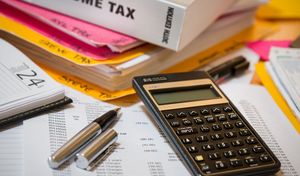Becoming a Certified Public Accountant (CPA) is a prestigious achievement in the field of accounting. A CPA license is a professional certification that validates the knowledge, skills, and abilities of a person in the field of accounting. In the United States, the CPA license is issued by each state's board of accountancy. In this blog, we will explore what a CPA license is, what it takes to obtain one, and why it is important for accountants and their clients.
What is a CPA license?
A CPA license is a professional certification that is issued by a state board of accountancy to individuals who meet the education, experience, and examination requirements. The CPA license demonstrates that the holder has met the rigorous standards set by the state board and is competent to practice accounting.
The requirements for obtaining a CPA license vary by state, but they generally require a bachelor's degree in accounting or a related field, completion of specific accounting courses, passing the CPA exam, and gaining a certain amount of professional experience in accounting. The specific requirements for each state can be found on the National Association of State Boards of Accountancy (NASBA) website.
Why is a CPA license important?
A CPA license is important for several reasons. First, it provides a level of assurance to the public that the holder has met the rigorous standards set by the state board and is competent to practice accounting. This gives clients confidence in the accountant's abilities and helps to protect the public from unqualified practitioners.
Second, a CPA license is often required for certain types of accounting work. For example, a CPA license is required for auditors who work on financial statement audits of public companies. A CPA license may also be required for other types of work, such as tax preparation and consulting.
Third, a CPA license can lead to greater career opportunities and higher salaries. Many employers prefer to hire individuals who hold a CPA license, and some may require it for certain positions. Additionally, holding a CPA license can open up opportunities for advancement within an organization or in the accounting profession as a whole.
How to obtain a CPA license?
The process of obtaining a CPA license can be lengthy and challenging, but it is well worth the effort for those who wish to pursue a career in accounting. The specific requirements for obtaining a CPA license vary by state, but they generally involve the following steps:
- Education: The first step in obtaining a CPA license is to complete the education requirements. This typically involves earning a bachelor's degree in accounting or a related field, and completing specific accounting courses that are required by the state board of accountancy.
- CPA Exam: The next step is to pass the CPA exam. The exam is administered by the American Institute of Certified Public Accountants (AICPA) and consists of four sections: Auditing and Attestation (AUD), Business Environment and Concepts (BEC), Financial Accounting and Reporting (FAR), and Regulation (REG). Each section is a four-hour computer-based test.
- Experience: Most states require individuals to gain a certain amount of professional experience in accounting before they can obtain a CPA license. The experience requirement may vary by state, but it generally involves working under the supervision of a licensed CPA and completing a certain number of hours of work in accounting.
- Ethics Exam: Some states also require individuals to pass an ethics exam before they can obtain a CPA license. The ethics exam is designed to test an individual's knowledge of ethical principles and standards that are applicable to the accounting profession.
- Application: Once an individual has completed the education, exam, and experience requirements, they can apply for a CPA license from the state board of accountancy. The application typically includes providing transcripts, exam scores, and proof of professional experience.
- Continuing Education: Once an individual has obtained a CPA license, they must maintain it by completing continuing education requirements. The specific requirements vary by state, but they generally involve completing a certain number of hours of continuing education courses every year or every few years.
Conclusion
In conclusion, a CPA license is a professional certification that is issued by a state board of accountancy to individuals who meet the education, experience, and examination requirements. A CPA license is important because it provides assurance to the public that the holder is competent to practice accounting, it is often required for certain types of accounting work, and it can lead to greater career opportunities and higher salaries.
Obtaining a CPA license requires a significant investment of time and effort, but it can be a rewarding achievement for those who wish to pursue a career in accounting. The specific requirements for obtaining a CPA license vary by state, but they generally involve completing a bachelor's degree in accounting or a related field, passing the CPA exam, gaining professional experience in accounting, passing an ethics exam, and completing continuing education requirements.

Here are some frequently asked questions (FAQs) about what is a CPA license:
What is a CPA license?
A CPA license is a certification issued by a state board of accountancy to individuals who have met specific education, examination, and experience requirements. It indicates that the holder has demonstrated competency in accounting and is authorized to practice public accounting.
Why is a CPA license important?
A CPA license is important because it provides assurance to the public that the holder is competent to practice accounting. It also opens up many career opportunities in accounting, such as auditing, tax preparation, financial reporting, and consulting. In addition, certain types of accounting work require a CPA license, such as audits of publicly traded companies.
What are the requirements for obtaining a CPA license?
The specific requirements for obtaining a CPA license vary by state, but they generally include completing a bachelor's degree in accounting or a related field, passing the CPA exam, gaining professional experience in accounting, passing an ethics exam, and completing continuing education requirements.
How long does it take to obtain a CPA license?
The time it takes to obtain a CPA license can vary depending on an individual's circumstances, but it typically takes at least 4-5 years. This includes completing a bachelor's degree, passing the CPA exam, and gaining professional experience. However, the exact timeline can vary based on factors such as the state requirements and the individual's pace of study and work.
How often do CPAs need to renew their license?
CPAs need to renew their license periodically, which varies by state. Some states require CPAs to renew their license every year, while others require renewal every few years. In addition to renewing their license, CPAs must also complete continuing education requirements to maintain their license.
A CPA is a certified public accountant who has met specific education, examination, and experience requirements and is authorized to practice public accounting. A non-CPA accountant, on the other hand, may not have met these requirements and may not be authorized to practice public accounting. However, non-CPA accountants can still provide valuable accounting services, such as bookkeeping, tax preparation, and financial analysis.






